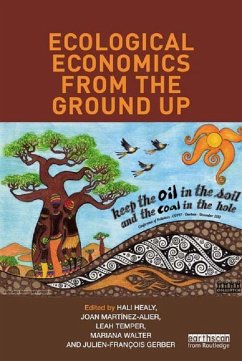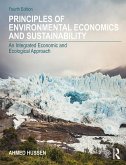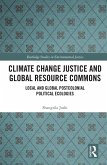Dieser Download kann aus rechtlichen Gründen nur mit Rechnungsadresse in A, B, BG, CY, CZ, D, DK, EW, E, FIN, F, GR, HR, H, IRL, I, LT, L, LR, M, NL, PL, P, R, S, SLO, SK ausgeliefert werden.
Pushpam Kumar, Chief Economist, UNEP
'Ecological Economics from the Ground Up is just what is needed for the times: down-to-earth documentation of how to fight bad economics with good economics, how to fight economic interests with an economics that empowers the public's interest in social justice and environmental sustainability. This book provides what is needed now: documentation of successful and on-going efforts from the bottom up to reshape the future along with a glossary of key concepts that challenge business as usual.'
Richard Norgaard, University of California, USA
'In this pioneering example of what the European Commission calls 'co-operative research', the authors have genuinely succeeded in articulating a diversity of often-conflicting disciplinary and societal perspectives around pressing social and environmental policy challenges around the world.
[...] A coherent set of central ideas and approaches are explored through an impressive array of empirical case studies. These span a wide range of contrasting industrial sectors and socio-ecological contexts, extending across both northern and southern global settings. The emphasis throughout is on international, environmental and institutional interconnections. The breadth of analysis also extends beyond the often-narrow disciplinary domains, to encompass often-neglected dimensions of culture and power, as well as economic, biophysical and technological dynamics.
[...] The final product should find an enthusiastic readership among policy makers, lobbyists, activists and environmental managers in business, in addition to academic researchers in the range of disciplines addressed: economics and political science, as well as various areas of environmental science and policy analysis.'
Andrew Stirling, University of Sussex, UK









